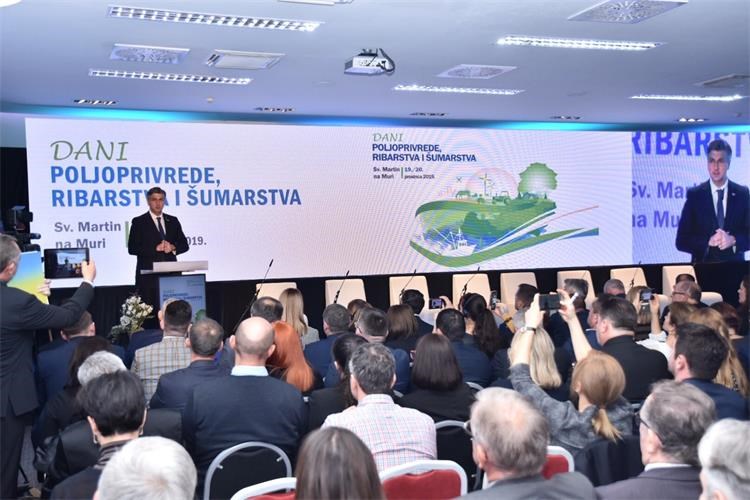


The conference, organised by the Agriculture Ministry and the World Bank, is taking place on December 19-20 and it has brought together more than 650 participants.
Speaking of his government's achievements in the agricultural sector, Plenkovic recalled a ban on unfair trade practices, cancellation of many costs and fees, de-mining of farmland, irrigation projects, indirect support for farmers through prices of diesel fuel used by farmers, support for apple and mandarin growers, as well as support to cattle farmers.
"We have secured access to sources of financing and this year alone we have paid the most subsidies to farmers and for investment in food production, in the amount of HRK 5.8 billion, which is the most in Croatia's history," said Plenkovic.
He also recalled that financial instruments had been introduced to award loans under more favourable terms, that VAT on goods used in agricultural production had been reduced to 13%, and that contracts had been signed for €13.5 billion (75%) worth of funds from the Rural Development Programme available to Croatia.
In our term alone, we have paid HRK 6.2 billion of the total of 7.8 billion paid, said Plenkovic, who was particularly satisfied that there was no return of unspent funds.
He said that agricultural production in 2018 had been five percent higher than in 2017 and that the export of agricultural products had increased. The export-import ratio for all agricultural and food products in 2018 was 67%, Plenkovic said, adding that that was the highest rate in the last six years.
He stressed that the number of farmers and beneficiaries of direct payments had increased and that the share of young farmers had been growing, standing at 22,351 or a 13.11% share.
Plenkovic said that work was underway on a strategy for agricultural development to respond to challenges in agriculture and fisheries in the period after 2020, with the strategy setting three strategic goals and one general goal, the strategic goals being increasing the productivity and climate resilience of agricultural production; strengthening the competitiveness of the business environment and the agricultural-food production system; and renewing rural economy and improving living standards in rural areas.
Encouraging agricultural and food production innovations is a horizontal goal, he added.
Agriculture Minister Marija Vuckovic said work was underway on making a comprehensive agricultural strategy that would serve as a basis for a national strategic plan for the Joint Agricultural Policy for the 2021-2027 period.
In cooperation with the World Bank we are completing a draft strategic vision for the development of agriculture and rural areas, she said.
World Bank Croatia director Elisabetta Capannelli said that Croatia had all the advantages because of its geographical position and available land and water.
It is therefore important for the country to make a new agricultural strategy that would contribute to a radical transformation of agriculture and revitalisation of rural areas, Capannelli said.
Text: Hina